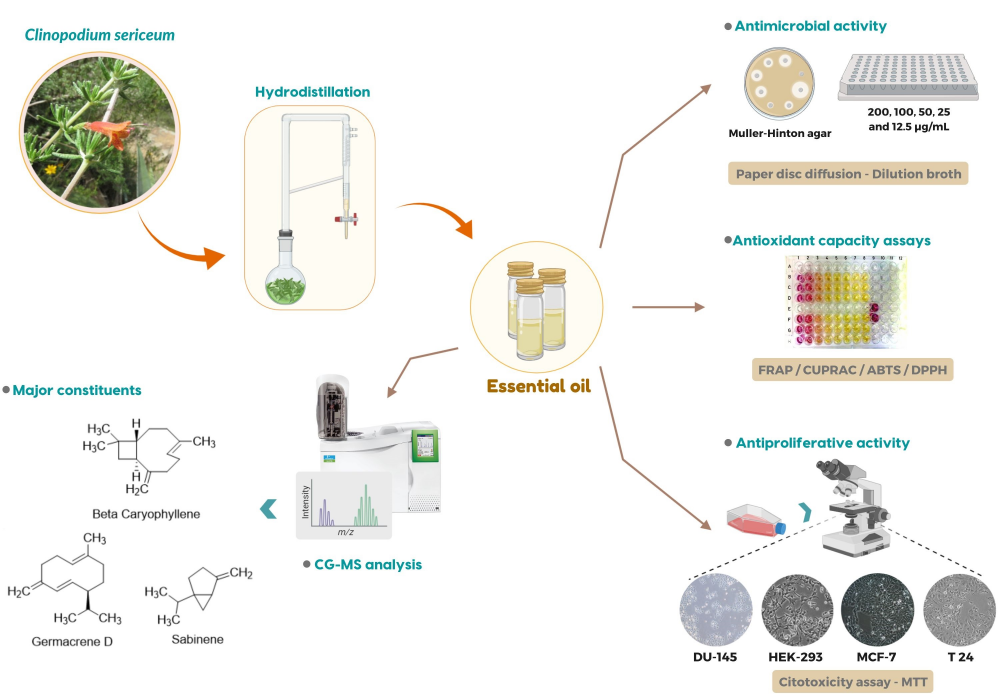JOURNAL 1845
Records of Natural Products
Year: 2021 Issue: 3 May-June
p.175 - 186
Viewed 3587 times.
-
Buc Calderon Pedro

-
Julio Benites

-
David Rios

-
Angélica Guerrero-Castilla

-
Cinthya Enríquez

-
Ewaldo Zavala

-
Roberto O. Ybañez-Julca

-
Quispe-díaz Ivan

-
Rafael Jara-Aguilar

GRAPHICAL ABSTRACT

ABSTRACT
Clinopodium sericeum is widely used in Peruvian folk medicine in the form of infusion to treat stomach distress, indigestion and antiflu. In this study, the essential oil from C. sericeum was obtained by hydrodistillation, analyzed by GC and GC/MS, and 73 compounds were identified. Major components of the oil were b-germacrene-D (15%), b-caryophyllene (13.8%), and sabinene (11.2%). Furthermore, we assessed the in vitro biological activities displayed by the oil obtained from the aerial parts of C. sericeum, namely the antioxidant, antimicrobial and antiproliferative activities. The antioxidant activities of the essential oil were evaluated by FRAP, CUPRAC, ABTS and DPPH radical scavenging activity. The essential oil displays antibacterial activity against Gram-negative and Gram-positive bacterial strains (MIC 50-200 µg/mL) in a dose-range close to standard antibiotics. Such activity may be related to the presence of terpene compounds. The antiproliferative activity of the essential oil was measured in vitro using the MTT colorimetric assay in healthy non-tumorigenic cells (HEK-293) and in three human cancer cell lines (T24, DU-145, and MCF-7). The calculated IC50 values were around 0.2 mg/mL. Since the essential oil was almost devoid of antioxidant activity, its anti-proliferative action is unlikely related to oxidative stress and relies on other unknown mechanisms.
KEYWORDS- Folk medicine
- Clinopodium sericeum
- antioxidant
- antimicrobial
- antiproliferative
- cancer cells